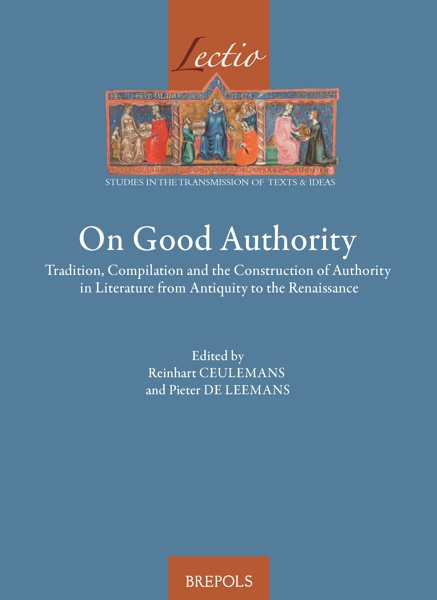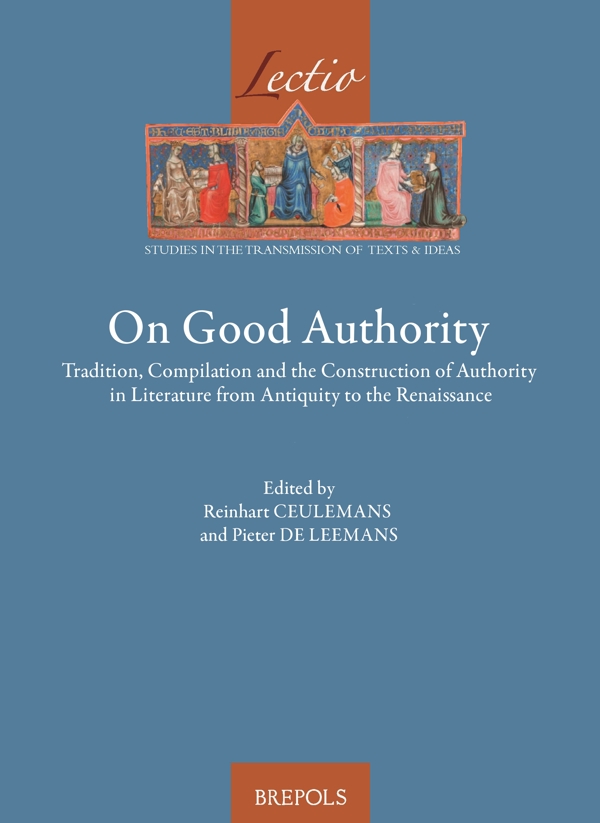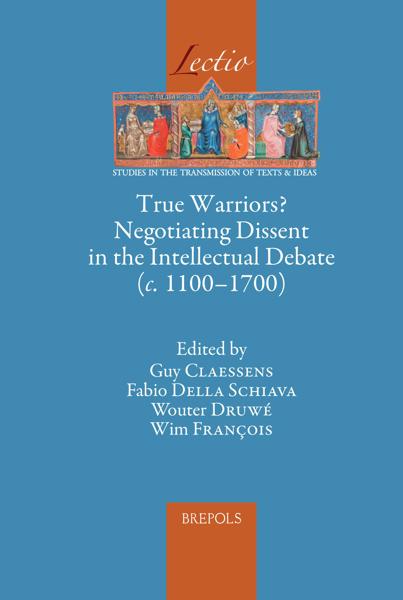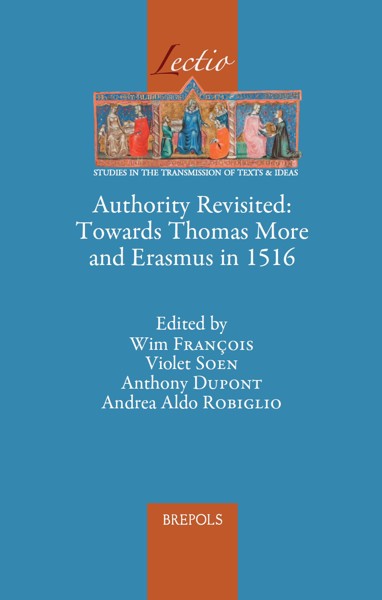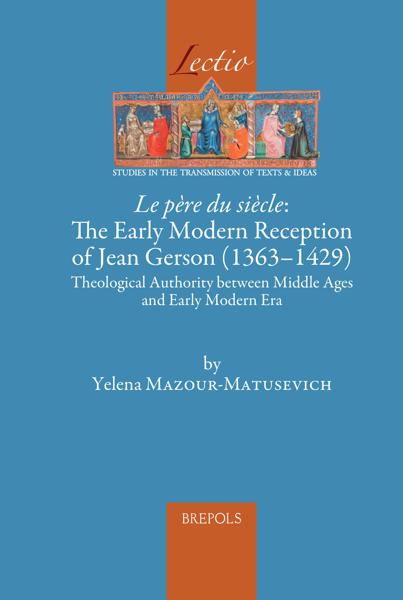
On Good Authority
Tradition, Compilation and the Construction of Authority in Literature from Antiquity to the Renaissance
Reinhart Ceulemans, Pieter De Leemans (eds)
- Pages: 470 p.
- Size:156 x 234 mm
- Illustrations:1 col., 15 tables b/w.
- Language(s):English, French, German
- Publication Year:2015
- € 125,00 EXCL. VAT RETAIL PRICE
- € 65,00 EXCL. VAT DISCOUNT PRICE VALID UNTIL 30 Jun 2026
- ISBN: 978-2-503-55479-2
- Hardback
- Available
- € 125,00 EXCL. VAT RETAIL PRICE
- ISBN: 978-2-503-57163-8
- E-book
- Available
Reinhart Ceulemans is Professor at the Department of Greek Studies of the KU Leuven, Belgium.
Pieter De Leemans (1973-2019) was Professor at the De Wulf-Mansion Centre for Ancient, Medieval, and Renaissance Philosophy (KU Leuven, Belgium) and academic secretary of the Aristoteles Latinus edition project.
This book brings together views from various disciplines on the concept of authority in Greek and Latin literature from Antiquity to the Renaissance. More specifically it deals with the questions how texts attempt to gain authority, and if and how they use - or abuse - earlier writings in the construction of their own authority. Moreover, this volume examines to what extent a text’s authoritative claims influence its transmission and reception and how these claims themselves are subject to evolution over time. In this context, special attention is devoted to compilation literature (such as anthologies and commonplace books), which is characterized by extensive use of existing source material and thus specifically poses the problem of the role played by compilers in transmitting and establishing authority. The volume contains 15 articles in which the contributors discuss various cases and texts that illustrate the different factors at stake in dealing with and constructing authority.
On Good Authority: Introduction (Reinhart Ceulemans & Pieter De Leemans)
Abbreviations
Authorship, Authority and Transmission
Un auteur impérial : Constantin Porphyrogénète (Bernard Flusin)
The Manuscript Tradition of the Quaestiones ad Antiochum ducem (Ilse De Vos)
The Authority of Tradition
Aux origines de l’argument patristique ? Citation et autorité dans le Contre Marcel d’Eusèbe de Césarée (Sébastien Morlet)
Aristotle in the Doxographical Tradition (But Not Aristotle Alone) (Jaap Mansfeld)
‘Look not into the Pages of Homer.’ Creating Authority through Source References in Ps.-Apollodorus’ Bibliotheca (Ulrike Kenens)
Capita Literature in Byzantium (Eva De Ridder & Katrien Levrie)
Selection and Claims to Authority
Florus of Lyons’ Expositio epistolarum beati Pauli apostoli and the Transmission of Augustine’s Sermones ad populum (Shari Boodts)
Autorschaft und Autorität in der Katenenliteratur (Luciano Bossina)
Remember Joseph Rhakendytès. Authorship and Authority in the Synopsis of Joseph the Philosopher (Erika Gielen)
From Compilation to Construction of Authority
« Florilège » et « autorité » : deux concepts en évolution depuis l’Antiquité jusqu’à la Renaissance (Jacqueline Hamesse)
Les recueils de distinctions sont-ils des florilèges ? (Sophie Delmas)
Le Décret de Gratien, un florilège de textes juridiques des années 1130 (Laurent Waelkens)
Valerius Maximus Christianus (Marijke Crab)
‘Tis all mine and none mine!’ Justus Lipsius and his Influence on Political Commonplace Books (Erik De Bom)
Le De iudiciis uirtutum et uitiorum d’Arnold de Saxe : un florilège moral sous forme de disputatio (Isabelle Draelants)
Indices
Index of Names
Index of Manuscripts
